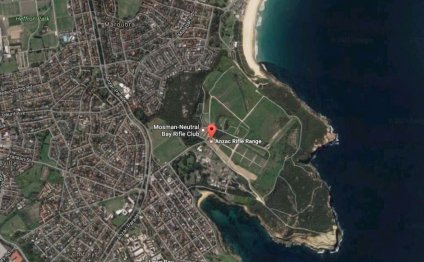
New South Wales Rifle Association
This instance handles the responsibilities of great faith and reasonableness into the exercise of express liberties to end a licence and ability of the Commonwealth to rely on the doctrine of executive necessity to end a contract in which there has been a modification of federal government plan.
Key learning
NSW Rifle Association Inc v Commonwealth shows the willingness of the latest South Wales process of law to depend on concepts of great trust and reasonableness to read down contractual termination rights. The way it is is significant in that, not only did the legal require your Commonwealth exercise its cancellation liberties for appropriate function and in good faith, but it also needed the Commonwealth to behave fairly in providing remedy sees plus fixing the period for remedying defects.
The way it is additionally illustrates the minimal usefulness associated with doctrine of executive prerequisite, suggesting your Commonwealth (as well as the States) will simply be able to invoke this doctrine in order to avoid its contractual responsibilities inside rarest of conditions.
Case note
The NSW Rifle Association (NSWRA) was in fact granted a licence to use particular land and buildings had by the Commonwealth on the Malabar Headland (the ANZAC Rifle Range). This licence have been registered into in 2000 because of the Commonwealth as a result of a determination because of the Liberal–National coalition government to grant the NSWRA a licence to utilize the ANZAC Rifle Range until an alternative solution firing range at Holsworthy ended up being constructed making designed for use because of the NSWRA. The licence deed provided the licence would terminate upon the Commonwealth providing a Relocation Notice stating that Holsworthy facility ended up being prepared to be used.
But last year, the work government made a decision to move the land towards NSW government to be used as a nationwide playground, without supplying the NSWRA with an alternative solution firing range. The Commonwealth desired to end the licence by depending both regarding the doctrine of executive need and on an express right that permitted the Commonwealth to terminate the licence in the event that NSWRA had not treated a breach specified in an answer notice “within a couple of weeks or these types of longer time as it is specified into the notice”. The NSWRA challenged the credibility of the tries to end the licence.
In assessing the Commonwealth’s workout of the express termination right, White J associated with the New Southern Wales Supreme Court read down the Commonwealth’s termination right by references to broad doctrines each of good-faith as well as reasonableness. White J found that these obligations arose the next factors:
- The licence entered into because of the events ended up being much like a commercial rent — a course of contract according of which the responsibilities of great belief and reasonableness are implied as a question of law.
- As a case of building, the Commonwealth’s power to issue notices requesting the NSWRA solution defects was to be exercised limited to the purpose of offering the NSWRA the opportunity to remedy those problems. To White J, not just did this need the Commonwealth to issue the remedy sees in good-faith, however the Commonwealth has also been expected to work out its unilateral right to permit a prolonged remediation period to be able to provide the NSWRA an acceptable opportunity to remedy the defects.
- The implied terms of good-faith and reasonableness had been analogous towards axioms under which equity restrains the exercise of a power for an improper function.
- The implied regards to good-faith and reasonableness pleased the criteria for ad hoc implication of terms set-out in BP Refinery (Westernport): particularly, they were with the capacity of obvious phrase, therefore obvious they moved without saying and essential to provide company efficacy toward contract (or, as customized inside non-business context, to provide effectiveness to your meant commitment between the functions).
Because the solution sees had been granted for an extraneous function (to evict the NSWRA) together with Commonwealth had accepted so it wouldn't happen feasible for the NSWRA to undertake the considerable remedial works explained when you look at the remedy notices in 14 time period specified when you look at the notices, White J discovered that the Commonwealth had acted unreasonably in providing the sees as well as in just permitting the NSWRA fortnight to treat the flaws. For this reason, their Honour ruled your cure notices had been invalid.
White J in addition rejected the Commonwealth’s assertion regarding the doctrine necessarily. His Honour unearthed that the doctrine ended up being inapplicable since, by entering to the licence deed, the Commonwealth wasn't fettering the long term workout of a public law discernment arising from either statute or a prerogative power. Alternatively, the Commonwealth ended up being simply exercising its abilities and binding it self as an owner for the land and, in that capability, stood in identical position as just about any party. Correctly, White J determined that the Commonwealth’s improvement in policy didn't entitle the Commonwealth to terminate the licence either at will or upon reasonable notice.
Share this Post
Related posts
Nambucca Heads, New South Wales
Thank you for visiting Eyecare Plus Optometrist Nambucca Heads Local optometrist Eyecare Plus Nambucca Heads target comprehensive…
Read MoreSydney New South Wales Australia weather
A slow-moving storm has actually hammered components of eastern Australia s New South Wales province with damaging winds…
Read More










